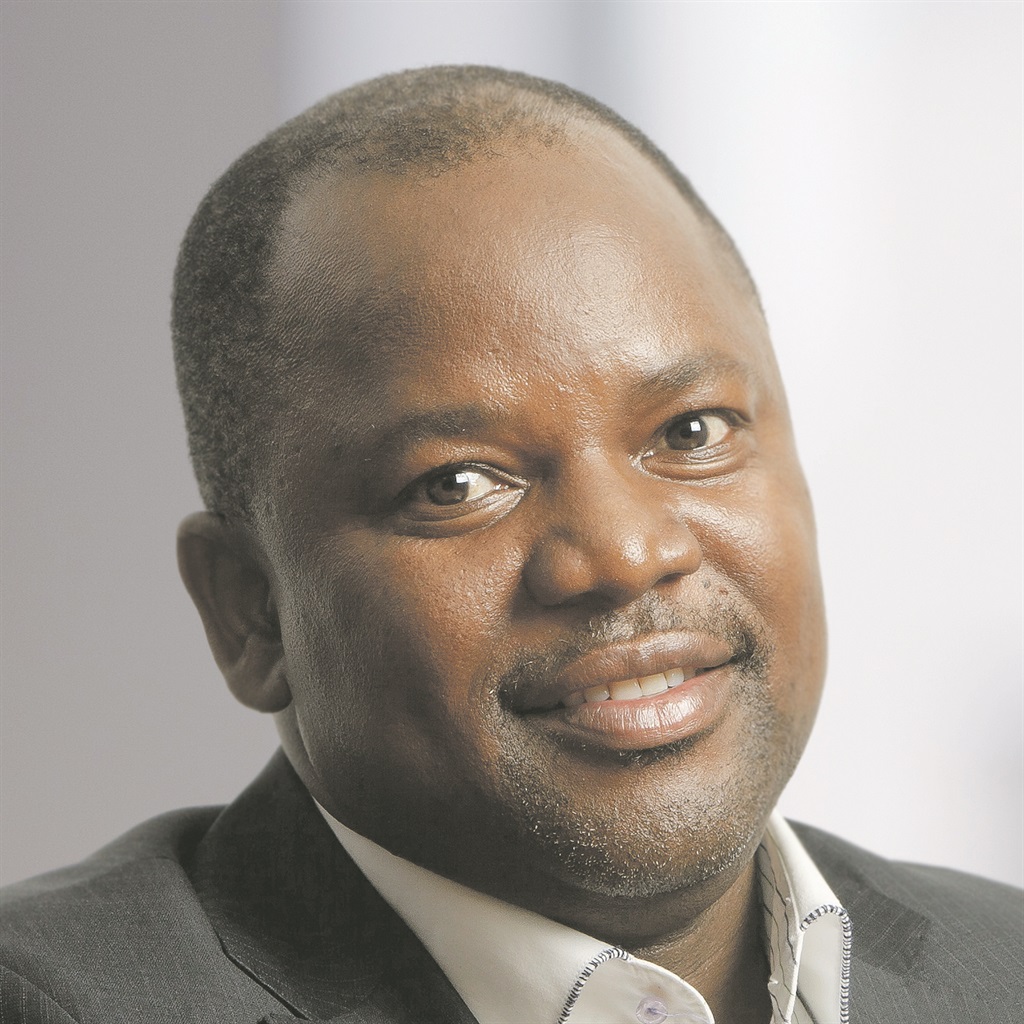
Newly appointed CEO at Anglo Coal SA spoke to City Press about empowerment, community and processing metal
For July Ndlovu, becoming the CEO of Anglo American’s South African coal business next month is a case of second time lucky.
“Seamus [French, Anglo CEO of bulk commodities] interviewed me for this job two years ago. That was when Themba [Mkhwanazi] was appointed CEO. Great guy ... It also taught me a very valuable lesson. Delay is not denial. So two years down the line, I’ve been made this offer in different circumstances,” he said during an interview at his office on the 12th floor of Anglo American’s local headquarters in downtown Johannesburg.
On July 18, Anglo American Platinum CEO Chris Griffith, Ndlovu’s boss, briefed him and French, and also chatted to him.
Soon after that, he had the job.
“Chris said this is what is happening. Congratulations. He didn’t even say, ‘do you want it or not?’ As a consequence of a series of conversations, he knew that I was looking for a bigger role,” Ndlovu said.
Ndlovu will replace Mkhwanazi, who has been appointed Kumba Resources CEO.
Ndlovu, who is currently an Anglo American Platinum executive, occupies a sparse corporate office with a few personal items, including pictures of his children and family, and a piece of art from Anglo’s collection on the wall.
“I like the abstract nature of it,” he said, pointing at the picture.
At Anglo Platinum, Ndlovu oversees 7 000 people as the platinum mining company’s executive in charge of processing.
At Anglo Coal SA, he will be in charge of up to 8 100 permanent employees, plus 6 400 contractors, working across local coal mines that produce 50 million tons of coal a year, which makes it one of the biggest coal producers in the country.
Anglo Coal SA also has a 23% stake in Richards Bay Coal Terminal, which exports coal.
Turning to transformation, Ndlovu said that black South Africans had unfulfilled expectations about change in the country.
“This is a country where blacks are a majority and we want to see a situation where the demographics of the country are reflected ... Look at the pipeline of talent that is coming through and getting promoted – not because of their skin colour, but because of the content of their character and their ability,” he said.
“If you go to engineering classes today, more than half [the students] are black people. If you look at our trainees, more than half are black, and if you look at our middle management, even the most critical roles, more than half are black. These are the people we are starting to promote.
“As the black majority, we have huge impatience that the top does not look like it has transformed. The majority of this country are coming through [the ranks]. All we needed to do was give them the opportunity and they are taking those opportunities,” he added.
“What creates tension in the country is that we want to see enough black people sitting on top of industry. As leaders, we need to continue to develop that talent. We need to be absolutely single-minded in ensuring that people are getting the skills, challenges and exposure to be the future leaders in this industry.”
Ndlovu said his leadership style was shaped by two key factors.
“I can describe my leadership style as what shapes me as an individual,” he added.
Ndlovu said that, as he grew up, he was shaped by his community.
In his younger days, he heard stories about what it meant to be part of a community and to play a positive role, and to “care very deeply about the next person”.
“It is that background that I take into the workplace,” he said.
His three children have taught him that they each need to be treated individually.
“Each person has unique talents, gifts and capabilities, and different needs and aspirations. We each have the aspiration to be the best that we can be. What that calls on is that we have to support and accept that everyone brings something to the table.
“If you can create an environment that gets the very best out of every single person and allows every person to volunteer their very best, I think you have an effective organisation.”
Ndlovu’s journey into the mining industry started two weeks into his first year studying medicine at the University of Zimbabwe, when he bumped into Anglo Zimbabwe’s technical director at the time, Harry Calver, who was looking for candidates to take up company scholarships.
“He was so convincing. He made mining sound very sexy. I had just [worked on] my first practical cadaver. That is how I ended up in mining with an Anglo scholarship,” Ndlovu said.
Ndlovu, who grew up in Shurugwi in Zimbabwe’s Midlands province, completed a metallurgical engineering degree and then joined Anglo as an employee in Zimbabwe in 1990, before joining Anglo in South Africa in 2001.
Later in his career, Ndlovu completed a senior executive programme with Columbia Business School in the US.
While in Zimbabwe, he worked in coal, ferrochrome, gold and nickel mines. He still has a connection with Zimbabwe – he is chair of Anglo Platinum’s Zimbabwean subsidiary, Unki Platinum.
Upon his arrival in South Africa, Ndlovu started at Anglo’s headquarters working on smelting projects before becoming the manager of AngloPlat’s Polokwane smelter. In 2007, he was appointed executive head of process at AngloPlat.
“If you’re an engineer, it is a dream. Platinum metal processing is a dream. It is complex, it is exciting. It throws up some of the most difficult problems that you can think of.
“But now I’m going into something very different. I’m looking forward to it,” Ndlovu said.
Anglo is in the process of exiting its coal mines around the world, including those in South Africa.
“I made the decision based on the understanding that [Anglo Coal SA will be sold]. There is a job to be done in coal. There is a business to be run,” he said.
“My immediate focus will be on operational performance that meets our customers’ needs, supporting the value of our domestic and export mines, and working together with colleagues and our key stakeholders to advance divestments,” Ndlovu added.
Looking ahead to Anglo Coal SA, Ndlovu said he had a lot to learn and hear at the unit to capture the aspirations of thousands of people.
One of the most satisfying aspects for Ndlovu has been to grow and promote black people, especially women, he said.
“I’ve had many experiences of building a school or a clinic, and you see the different it makes to a community. I have been fortunate to do many things other than just processing,” Ndlovu said.




 Publications
Publications
 Partners
Partners








